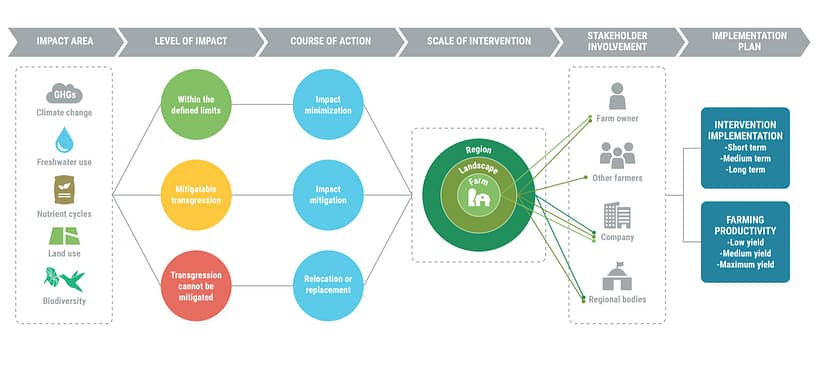It’s becoming increasingly clear that businesses play a crucial role in preserving and reviving nature. And between climate change and biodiversity loss, the stakes have never been higher.
But knowing where to begin, or how to track progress, can be daunting. That’s where science-based targets come in. By setting measurable goals that are grounded in rigorous scientific research, businesses can start taking action for a nature-positive future.
What are science-based targets for nature?
Science-based targets for nature are goals that align with key global policy milestones like the Sustainable Development Goals (SDGs), the United Nations Framework Convention on Climate Change (UNFCCC), and the United Nations Convention to Combat Desertification (UNCCD). These targets provide much-needed clarification on the necessary corporate action to prevent catastrophic biodiversity loss and restore ecosystems. They offer a clear and measurable way for companies to demonstrate their commitment to protecting and restoring nature, and to track their progress over time.

Setting SBTs allows companies to go from vague intentions like: “We should probably do something with water” to specific commitments such as: “We’re going to reduce our water consumption in high water stress regions by 25% compared to 2020 by 2030 by increasing rainwater catchment on our farms and reusing more water.” By translating ambition into science-based targets, both the destination and the path forward become clear.
The step-by-step process of adopting SBTs for nature
Discover the step-by-step process of adopting science-based targets for Nature through the Science Based Target Network (SBTN) framework. Developed by a group of experts from more than 60 NGOs, business associations, and consultancies, this framework addresses the urgent need for businesses to address the biodiversity crisis. While adhering to a standardized framework, SBTs also take into account the unique circumstances and context of each organization. They provide answers to the question: “To help protect and restore nature, what does my company need to do?”
Benefits of setting science-based targets for companies
More than 2,500 companies have already adopted SBTs for Climate. We can now see evidence that successful business operations and ambitious sustainability targets go hand in hand. Companies say that setting SBTs have helped them to:
- Stay ahead of regulation, policy changes, and new reporting frameworks, such as the CSRD, the TNFD, and EU Taxonomy.
- Enhance their reputation among consumers, employees, and society as a whole.
- Increase the confidence among investors, parent companies, subsidiaries, and other stakeholders.
- Create opportunities for collaboration with stakeholders.
- Improve medium-to-long-term profitability by ensuring the resilience of core commodities.
How Metabolic supports companies in setting science-based targets for nature
At Metabolic, we specialize in helping companies set science-based targets according to the SBTN framework. We have significant experience working with the Science-Based Targets Network and other organizations to determine material impacts within value chains and identify spheres of influence. Our previous work with companies in the textile and food and beverage sectors helped shape new cutting-edge methodologies.

Notably, we have helped both Alpro and Bel Group in piloting SBTs.
Our team of specialists helps companies to:
- Understand their impact and dependencies on biodiversity and ecosystem services, and identify opportunities for improvement. (If you’re looking for a comprehensive, actionable, and easy-to-understand dashboard of your impacts on nature, Link, Metabolic’s brand new nature impact and risk assessment platform, is here to help.)
- Determine the level of ambition needed to contribute to global biodiversity conservation and ecosystem restoration goals.
- Define the target scope and boundary, aligning targets with their business strategy and context.
- Develop a roadmap to achieve targets, including identifying actions, measuring progress, and reporting on results.
- Monitor and report progress towards targets, continuously improving performance over time.
Setting science-based targets for nature is a powerful way for businesses to demonstrate their commitment to protecting and restoring the natural world, and to drive meaningful change. Your company too can set actionable and effective goals, driving positive change towards a nature-positive future. All you need is ambition and a helping hand.




